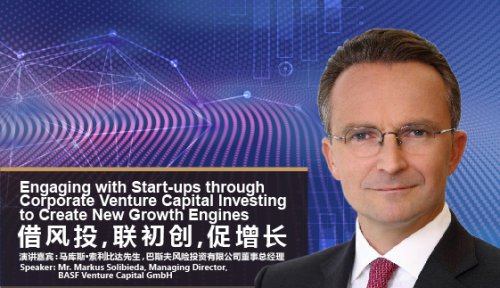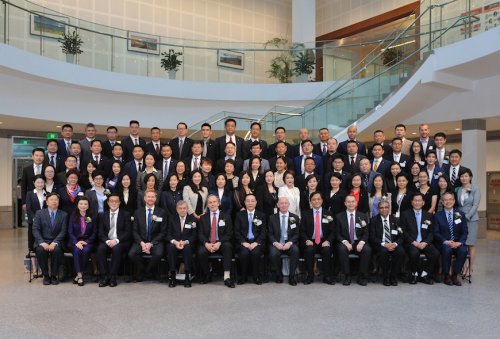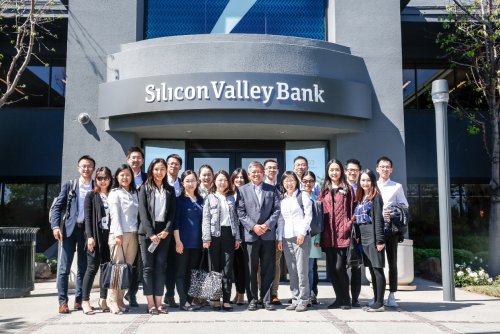May 14, 2018. Shanghai – A considerable number of innovations now lie in the bold attempts of start-ups. This is gradually being realised by established companies and makes it attractive for them to introduce these innovations into their own businesses through, for example, corporate venture capital (CVC) investment – a mutually beneficial form of partnership. This was the topic on which Mr. Markus Solibieda, Managing Director of BASF Venture Capital GmbH, today shared his insights while keynoting a CEIBS Executive Forum on "Engaging with Start-ups through Corporate Venture Capital Investing to Create New Growth Engines".
Citing the value and numbers of VC and CVC deals in China during the past eight years, Solibieda noted that China has now become a leader – no longer a follower – in these types of investments. He added that the most popular fields include the shared economy, electric and autonomous vehicles, AI, technology, healthcare, e-commerce, and B2B enterprise services. Solibieda also stressed that, in addition to China-based funds, more and more multinationals such as Intel, IBM, Qualcomm, and Samsung among others, are also active in CVC investment in Chinese start-ups.
The CVC approach, Solibieda explained, is to invest in young companies with disruptive technologies and business models to support the corporations' growth strategy. And this kind of partnership can be mutually beneficial.
On one hand, in addition to financial support, CVCs can provide management and marketing expertise to start-ups, sharing their resources (such as R&D labs and expertise, manufacturing facilities, and distribution networks) and experience in the industry and offering advice for the investees' operations and decision-making. Besides, established corporates can open up their customer base to the start-ups they invest in, taking full advantage of their global client base to help fledgling companies build up their customer networks in the early stages.
On the other hand, Solibieda suggested, cooperation with start-ups may reward large corporations with inspiration and even opportunities for new business. Start-ups pursue disruptive innovation, he pointed out, while established enterprises tend to be good at continuously improving their products through incremental innovations. Also, a start-up is usually customer-centred, attempting to identify unmet needs in the market, instead of simply marketing its products, as established companies tend to do. These enormous differences may cause conflict in the partnership between CVCs and those who benefit from their investment; however, it is in the exchange of ideas that outside innovation gives birth to new perspectives for the corporate investors, he said.
























